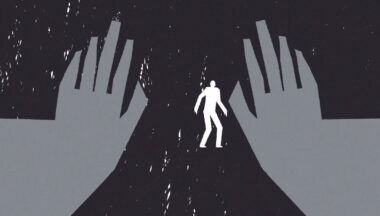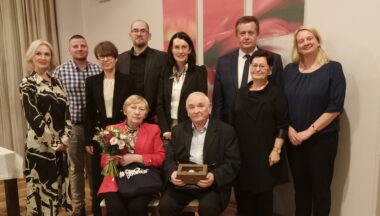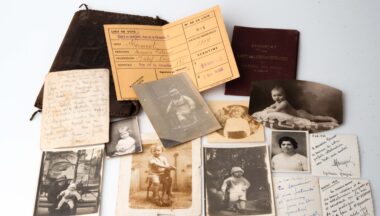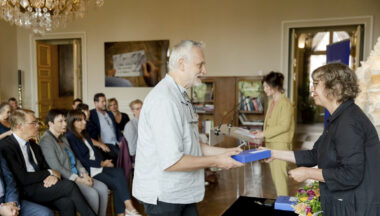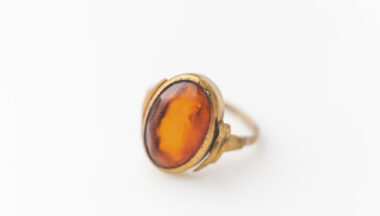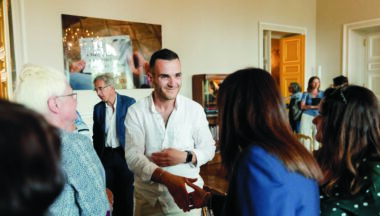Keepsakes of Concentration Camp Inmate Francis Poguet Returned to his family
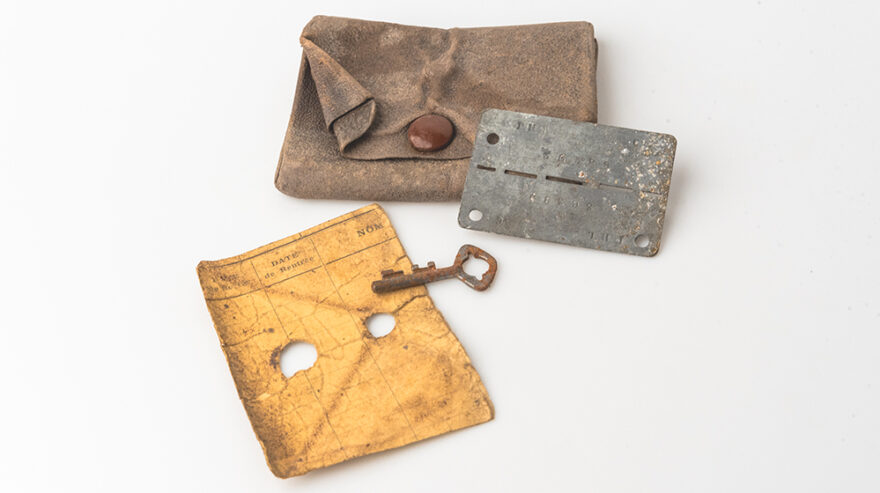
In August, relatives of Francis Poguet received back from the Arolsen Archives the last personal belongings of the former concentration camp prisoner. It was shortly before the war end when the 37-year-old Frenchman died in the Bergen-Belsen concentration camp that had already been liberated. He left behind a wallet, a small key, a piece of paper with a hole in it, and an identification tag from Compiègne with his registration number on it.
It is evident from records kept in the Arolsen Archives that the Nazis interned Francis Poguet in the Compiègne police detention camp at an unknown date assigning him the prisoner number 36389. While the reason for his arrest is unclear, it is known, though, that the Nazis transferred him to the Neuengamme concentration camp in June 1944. There he had to hand over his personal belongings and perform forced labor.
13.000 Concentration Camp Inmates Died after Liberation
When the Allied troops were approaching in April 1945, the SS cleared the camp and sent the surviving prisoners on a death march toward Bergen-Belsen. It is not clear when Poguet arrived there. Not even his date of death could be clarified exactly, but narrowed down only: He died between April 19 and May 1, 1945, that is, after the detainees had been liberated by British troops. On their arrival, the Britons found many prisoners to be physically weakened by the inhumane prison conditions and the almost complete lack of hygiene. There were outbreaks of typhus and typhus fever. That is the reason why, after liberation, still about 13,000 people died in Bergen-Belsen from diseases resulting directly from the way they were treated by the Nazi regime.

Around 13,000 prisoners died in Bergen-Belsen after liberation falling ill as a result of the way they were treated by the Nazis. (Photo: United States Holocaust Memorial Museum, 75122)
In documents preserved in the Arolsen Archives, it is noted that Francis Poguet was born in Bone (now Annaba) in Algeria. His father was assigned there as commander of the French colonial troops. Francis Poguet had two brothers and a sister and worked as a cook in Cannes when he got married in 1933. Like his parents, he lived in Chambéry (Savoie).
His Niece wants to Honor her Uncle’s Memory with her Trip
Two nephews and the niece of Francis Poguet came to Bad Arolsen for being returned the keepsakes. “As soon as we learned about my uncle’s personal effects, we realized that we wanted to pick them up in person,” say Philippe Lebeau and Hélène Poguet. Their motivation is clear: “With this trip, we want to honor our uncle’s memory.” A Belgian volunteer working at the Arolsen Archive had identified Philippe Lebeau as a member of Francis Poguet’s family. As a result, the latter began to take a closer look at the life of his hitherto unknown uncle. So he found out that Francis Poguet while married was without children.
 Francis Poguet (right) in a 1932 photo that Hélène Poguet, daughter of his eldest brother Ivan, found in her father’s photo album.
Francis Poguet (right) in a 1932 photo that Hélène Poguet, daughter of his eldest brother Ivan, found in her father’s photo album.
What is Supposed to be Done with the Keepsakes?
Bernard Lebeau, nephew of Francis Poguet, is grateful for the returned keepsakes. “With this return, I have found an uncle,” he says considering that before the surprising news, there had been little talk in the family about the mysterious relative. That has changed now. Since the handover in Bad Arolsen, the family has been discussing on what to do with the items. “We can imagine giving the effects on loan to a museum or memorial,” says Philippe Lebeau. It is also conceivable, though, to place the keepsakes in the family grave. Their former owner Francis Poguet was buried anonymously in a mass grave in Bergen-Belsen. “Laying his keepsakes to rest in the family grave would give him back part of his dignity,” says Hélène Poguet.

Handover of the keepsakes in Bad Arolsen (from left to right): Nathalie Letierce-Liebig from the Arolsen Archives, Philippe Lebeau, Bernard Lebeau and Hélène Poguet.
